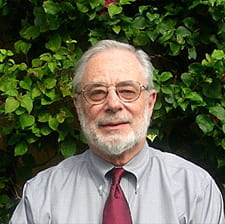
JAMES A. INCIARDI, Co-Director of the Center for Drug and Alcohol Studies at the University of Delaware and Professor of Sociology and Criminal Justice died on Monday, November 23, 2009 after a prolonged and courageous battle with multiple myeloma. Jim was born in Brooklyn on November 28, 1939 and spent his youth and young adulthood in New York City and its Boroughs. Wherever he lived and worked in later years, New York City remained central to his identity. He graduated from Fordham University and had an early and varied career as a jazz drummer and parole officer for the City of New York. In the late 1960s he went to work for Carl Chambers at the New York State Narcotic Addiction Control Commission and entered graduate school at New York University.
In 1991, Jim founded the Center for Drug and Alcohol Studies (CDAS) at the University of Delaware within the Department of Sociology and Criminal Justice in the College of Arts and Sciences. The mission he established for CDHS is the production, dissemination, and utilization of scientific knowledge in preventing and treating substance abuse and other health risk behaviors among hard-to-reach populations of youths and adults. Over the years the Center has grown in both size and in the scope of its studies. The Center supports a number of graduate students, faculty associates, and part time researchers as well as its full time staff. Jim remained a very active Co-Director of the Center till his death.
During his long scholarly career of over 40 years, Jim published over 500 articles, chapters, books, and monographs in the areas of substance abuse, criminology, criminal justice, history, folklore, public policy, AIDS, medicine, and law. His scholarly publications included several seminal papers on the epidemiology of crack cocaine use, as well as the effectiveness of prison-based substance abuse treatment for drug-involved offenders. This body of scholarly work will be an enduring memorial to him. He was a revered colleague and engaged in extensive consulting work both nationally and internationally. Even more important than his professional work is the living memorial that remains among his professional friends and colleagues. He was a “translational scientist” long before the term came into vogue, interested in moving ideas into tested strategies and then disseminating the knowledge and practices for use in real-world settings. He could move effectively and communicate clearly with academic, professional, and government audiences. In the process he built a wealth of friends in university settings, departments of correction, and government agencies such as NIDA, SAMHSA, CDC, and ONDCP. They will miss him and strive to carry on his work.
Personally, Jim loved jazz, scuba diving, traveling and collecting art from Latin America. Although his battle with cancer curtailed many of these activities in recent years, he remained remarkably positive and upbeat, and never gave up hope in his fight. He is survived by his wife, collaborator and partner, Hilary Surratt, and by his three children, Craig, Brooks, and Kristin. He is also survived by his sister Anne Cifu, his daughters-in-law Joan and Lynne, and his grandchildren Allegra, Brooks, Anastasia, and Alessandra.
James A. Inciardi Memorial Award Fund
Because of James Inciardi’s work in the field and support of graduate students, an award was set up in his honor. This award supports outstanding students in the area of Criminology & Criminal Justice.
- 2022-2023: Jullianne Leonor Regalado
- 2021-2022: Adam Gavnik
- 2020-2021: Chelsi Lamberton
- 2019-2020: Chanya Anderson
- 2018-2019: Sal D’Angelo
- 2017-2018: Madeline Stenger
- 2016-2017: Kate Kafonek
- 2013-2016: Aneesa Baboolal
- 2012-2015: Jessica Boatwright
- 2011-2014: Tom Mowen
- 2010-2013: Lionel Smith
Oral History Project: 1996 James Inciardi Interview
